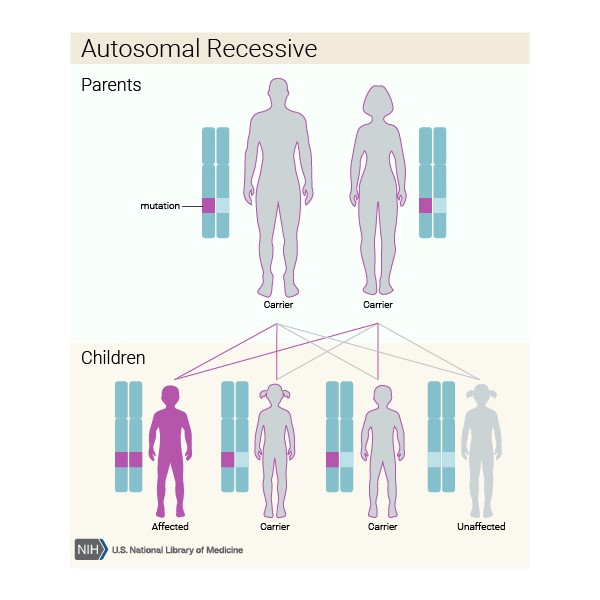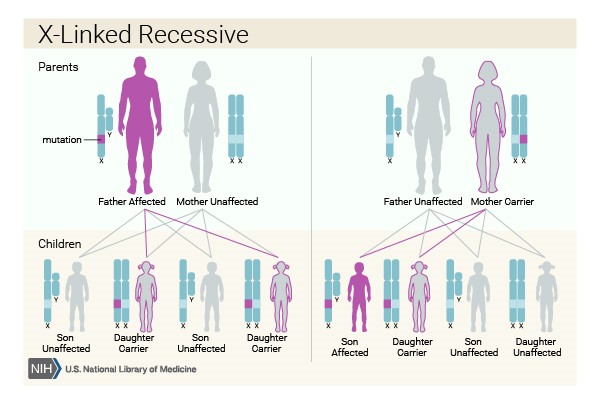Many women who are pregnant or women / couples considering a pregnancy will have thought about the possibility of their child inheriting a genetic condition. The most commonly screened for conditions in pregnancy are those that result from a change in chromosome number such as Down’s syndrome (caused by the baby having an additional chromosome 21 – ‘trisomy 21’), Edward’s syndrome (trisomy 18), and Patau’s syndrome (trisomy 13). The likelihood of having a baby with these syndromes is generally related to older female age, rather than these being conditions which are passed down through families.
In addition to screening for these sporadic chromosomal conditions, pregnant women, or those considering a pregnancy, are able to screen for genetic defects which they may unknowingly carry and pass on to their babies. This is called pre-conception screening.
The experts at Genes Australia have kindly put together a few paragraphs to explain this concept.
What is preconception carrier screening?
Preconception carrier screening is a blood test to determine the chance that a couple is at an increased risk of having a child with a serious genetic condition.
When is the best time to have preconception carrier screening?
Preconception carrier screening is best done prior to planning a pregnancy, to allow time for discussions about reproductive options for a couple who are at high risk of a genetic condition.
I don’t have a family history of any genetic conditions – do I still need to have screening?
Preconception carrier screening covers autosomal recessive and X-linked recessive conditions. In recessive conditions, there is often no family history of the condition. This is because carriers do not generally have symptoms. If a family history of a genetic condition is identified, targeted testing for the known condition in the family is recommended.
What is an autosomal recessive condition?
 Figure 1 Autosomal recessive inheritance. Illustration credit: National Library of Medicine (US)
Figure 1 Autosomal recessive inheritance. Illustration credit: National Library of Medicine (US)
An autosomal recessive condition is due a fault on a gene carried on the chromosomes that are similar between boys and girls (called the autosomes). When two individuals carrying the same faulty gene have a baby, there is a 25% chance of having a child with that condition. There is a 50% chance of having a child who is a carrier and not affected and a 25% chance of having a child who is not a carrier and who is not affected.
What is an X-linked recessive condition?
 Figure 2 X-linked recessive inheritance Illustration credit: National Library of Medicine (US)
Figure 2 X-linked recessive inheritance Illustration credit: National Library of Medicine (US)
An X-linked recessive condition is due to a fault in a gene carried on the X-chromosome. Boys have one X-chromosome whilst girls have two X-chromosomes. In X-linked recessive conditions, boys who inherit the faulty gene are affected because their only X-chromosome carries the affected gene. Girls who inherit the faulty gene are generally unaffected because they have another X-chromosome that is working.
What conditions does preconception carrier screening cover?
There are many tests on the market. In general, they all cover genetic conditions that cause severe disease in children and that have no or limited treatment options.
There are two main types of preconception carrier screening. The first test examines three of the more common genetic conditions: cystic fibrosis, spinal muscular atrophy and fragile X syndrome.
Cystic Fibrosis is an autosomal recessive genetic condition affecting the lungs in children. Children with cystic fibrosis frequently have problems maintaining adequate nutrition, because the pancreas is often also affected. Children with cystic fibrosis usually have a shortened life expectancy.
Spinal muscular atrophy (SMA) is an autosomal recessive genetic condition affecting the muscles in children. Children with SMA are usually of normal intellect. The most severe type of SMA results in death in infancy or within the first two years of life.
Fragile X syndrome is an X-linked genetic condition affecting boys more than girls. It is the most common cause of intellectual disability in boys. Women with Fragile X syndrome may have premature menopause whilst both men and women with Fragile X may develop an unsteady gait (ataxia) and a tremor in later years.
The second type of preconception carrier screening is an extended screen covering many autosomal recessive and X-linked recessive conditions. Which test is appropriate for you depends on your own set of circumstances.
How accurate is the test?
Both the three-gene panel and the expanded carrier screening panel are highly accurate. For couples not at an increased risk of a genetic condition on testing, the remaining risk is very low of having a child with the tested condition.
Will I need to have preconception carrier screening for every pregnancy?
As preconception carrier screening covers the chance of a couple having a child with a serious genetic condition, testing need only be done once, unless either of you change partners.
What happens if the test shows I am at an increased risk of a genetic condition?
For couples found to be at an increased risk of a genetic condition, the information can be unexpected and upsetting. It is important that you receive specialist genetic advice regarding your options. If you are already pregnant, options include prenatal testing or not testing the baby at all. If you are not pregnant, options might also include testing an embryo created through IVF. Speaking to a genetic counsellor or geneticist will assist you in making a decision that is right for you.
Where can I learn more about preconception carrier screening?
Genetic counsellors and geneticists are experienced in all aspects of preconception carrier screening and genetic conditions. A genetic counsellor and geneticist will discuss your own risks of being a carrier, including analysis of your family history. We are experts at explaining complex genetic information in a way that is easy to understand, taking into consideration your own beliefs and values in planning a family.
Blog post by Genes Australia
Comments are closed.

 Figure 2 X-linked recessive inheritance Illustration credit: National Library of Medicine (US)
Figure 2 X-linked recessive inheritance Illustration credit: National Library of Medicine (US)